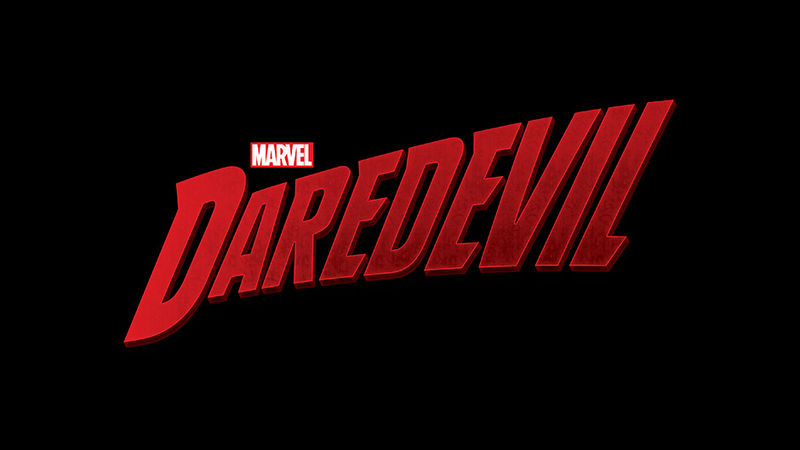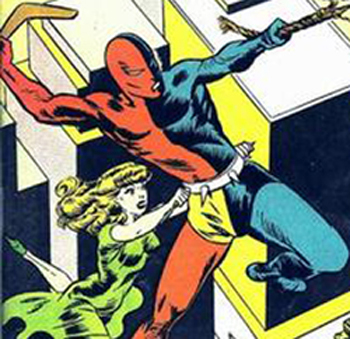Why Marvel’s Daredevil isn’t a role model for defense attorneys

Photo from Wikimedia Commons.
If you aren’t a fan of comics, I understand entirely. They aren’t for everyone. Please, though, don’t jump ship just yet. There is a genuine chance we’ll be on the same page in about 1,200 words no matter your feelings toward comic book culture. Or you might hate this correlation and let me know in the comments below ... either way, just give it a chance.
The late, great Stan Lee created some of the most iconic literary characters of all time. His roster of characters is a who’s who of the greatest superheroes (and villains) ever transcribed to paper. The Avengers, the X-Men, the Fantastic Four and Spider-Man are just a few of his comic conceptions.
Daredevil was also created by Lee and first introduced to audiences in 1964. From there, he went on to headline his own series for decades, along with guest-starring in many other publications. He has appeared in cinema (thanks Ben Affleck), and Netflix just aired the third and final season of their original series focusing on the character.
DAREDEVIL: THE DEFENSE ATTORNEY
I’ll cut to the chase. Daredevil’s secret identity is Matt Murdock, a Columbia Law-educated attorney practicing in New York City. Specifically, he calls the famed Hell’s Kitchen neighborhood home. The character is no flash-in-the-pan either. Daredevil has his devotees, and he was named by the ABA Journal as one of the Top 10 Lawyers in Comics.
What makes Murdock a superhero? When he was younger, Murdock lost his sight (but also enhanced his other four senses) when he was doused by chemicals that spilled off a truck as he tried to save someone in the street. Murdock grew up an orphan after his single-parent father, “Battling Jack” Murdock, was murdered due to his refusal to throw a boxing match. Murdock used his enhanced senses and hand-to-hand combat skills to confront his father’s killers and ultimately set himself on a lifelong path of vigilante justice.
Depending on which incarnation you’re dealing with, Murdock and law partner Foggy Nelson practice a variety of different areas of law in their small firm. Even the Marvel Database fails to list which areas of law the attorneys focus on. However, in many of the comics, and also in the latest Netflix series, audience members see Murdock practicing criminal defense and civil rights litigation to a certain degree. This is furthered by various comic-book story arcs and televised cartoon episodes showing Daredevil defending other superheroes charged with crimes.
As I mentioned, the Netflix series just aired its third season. The first was amazing. It had a great deal of realism and balance that stood in stark contrast to the characters that were simultaneously appearing in big-budget Marvel productions on the big screen. The series has fallen off a bit with each successive offering, but it’s still overall a solid effort. Other sites have already delved into topics such as “How to Make Daredevil a Better Legal Show,” so I’m going to stay away from that. Instead, I want to look at the idea of how to balance a career as a criminal defense attorney, so you don’t end up a criminal vigilante.
TAKING THE LAW INTO YOUR OWN HANDS
 Daredevil Comics #5 (November 1941). Art by Charles Biro. Photo from Wikimedia Commons.
Daredevil Comics #5 (November 1941). Art by Charles Biro. Photo from Wikimedia Commons.
I find it hard to fathom the mindset necessary to play both roles concurrently. As a criminal defense attorney, I can tell you from experience that it’s impossible to like all of your clients. It’s easy to dislike many of them, depending on what kinds of crimes you defend. But to defend criminals while simultaneously hunting them down? That’s a tall order.
If you are only defending street-level misdemeanors like larcenies and DUIs, it’s sometimes easier to sympathize with, and understand, the person behind the crime. However, that gets extrinsically more taxing as the level of violence or depravity is increased. There are some crimes that are so troubling they reach the point of no rational explanation. When dealing with crimes of that magnitude, there is a possibility one could dissociate from the client and lose the human connection necessary to advocate for another person.
There is a certain temperament that is necessary to defend criminals, and it is somewhat of a one-sided coin. You have to believe in the system—and your place in the grand scheme—or the constant defeats and condemnation associated with the profession will eat you alive. Clients are often unhappy with you if you can’t achieve every single goal they set out (whether realistic or not). If you try difficult criminal jury trials, you are bound to lose your fair share. Regardless of how hard you fight, many clients on the losing end will harbor more resentment against you than they do the actual people prosecuting them. That goes part and parcel with the practice.
And too much of that practice could arguably lead to the defense attorney, in turn, resenting those clients. If your practice centers on major felonies, you know the difficulty is there. Regardless of whether the defendant confesses to you or maintains innocence, you know what the facts say. Therein lies the internal challenge. Not all are able to compartmentalize their emotions and separate them from their obligations. Still, the possibility of arriving at a place where a practitioner would prefer to inflict punishment on perpetrators is another level, though. That mindset is what casts Daredevil as a somewhat misunderstood antihero.
The notion hasn’t really been explored much, but the thought process makes me wonder which came first: the chicken or the egg? Did Murdock enter the legal profession to further his desire to become a vigilante, or did entering the legal profession cause Murdock to realize he needed to punish those the system let get away? Can defending criminals turn you into a criminal yourself?
SWITCHING SIDES
Hopefully, readers of this column haven’t become so disenchanted with their jobs defending the accused that they are on the verge of dawning a mask and spandex to enact vengeance. If you are, call a friend. Talk to someone. Even if you have super enhanced senses and incredible fighting skills, you’ll probably end up getting sliced, diced and shot a few times.
No, the burnout with the profession doesn’t send attorneys into the dark of night to prey on those who would prey on others. But it can manifest in other ways. I’ve seen it with my own two eyes. Maybe you stop working as hard on your cases. Maybe you make up your mind about a client and refrain from objectively evaluating the defense. Maybe you take enjoyment in seeing clients go to prison for crimes they admittedly committed. No matter the degree of the professional degradation, it isn’t good for the attorney, the legal profession and the general public.
So if you’re a criminal defense attorney and you begin to resent your clients to the point of wanting to see them prosecuted, it’s probably time to change sides. Get a job as a prosecutor and channel the burnout in a positive direction. That’s what Daredevil did, at least. Later in his comic book series’s run, Murdock returns to Manhattan with a new alter ego and takes up a job as a prosecutor.
It seems to fit the narrative better, in my opinion. There is an interesting angle to someone defending by day the same people he hunts by night, but it gives off a mild sense of schizophrenia. At least a prosecutor by day/“prosecutor” by night correlation is consistent.
Perhaps I feel that way because I haven’t given up on criminal defense yet. I don’t think my clients should be punished unless the prosecution proves its case beyond a reasonable doubt. If I ever get to the point of resentment where that belief no longer exists, I’ll quickly begin looking for a new career. I’m sure you would do the same.

Adam Banner
Adam R. Banner is the founder and lead attorney at the Law Offices of Adam R. Banner, a criminal defense law firm in Oklahoma City. His practice focuses solely on state and federal criminal defense. He represents the accused against allegations of sex crimes, violent crimes, drug crimes and white collar crimes.
The study of law isn’t for everyone, yet its practice and procedure seem to permeate pop culture at an increasing rate. This column is about the intersection of law and pop culture in an attempt to separate the real from the ridiculous.




